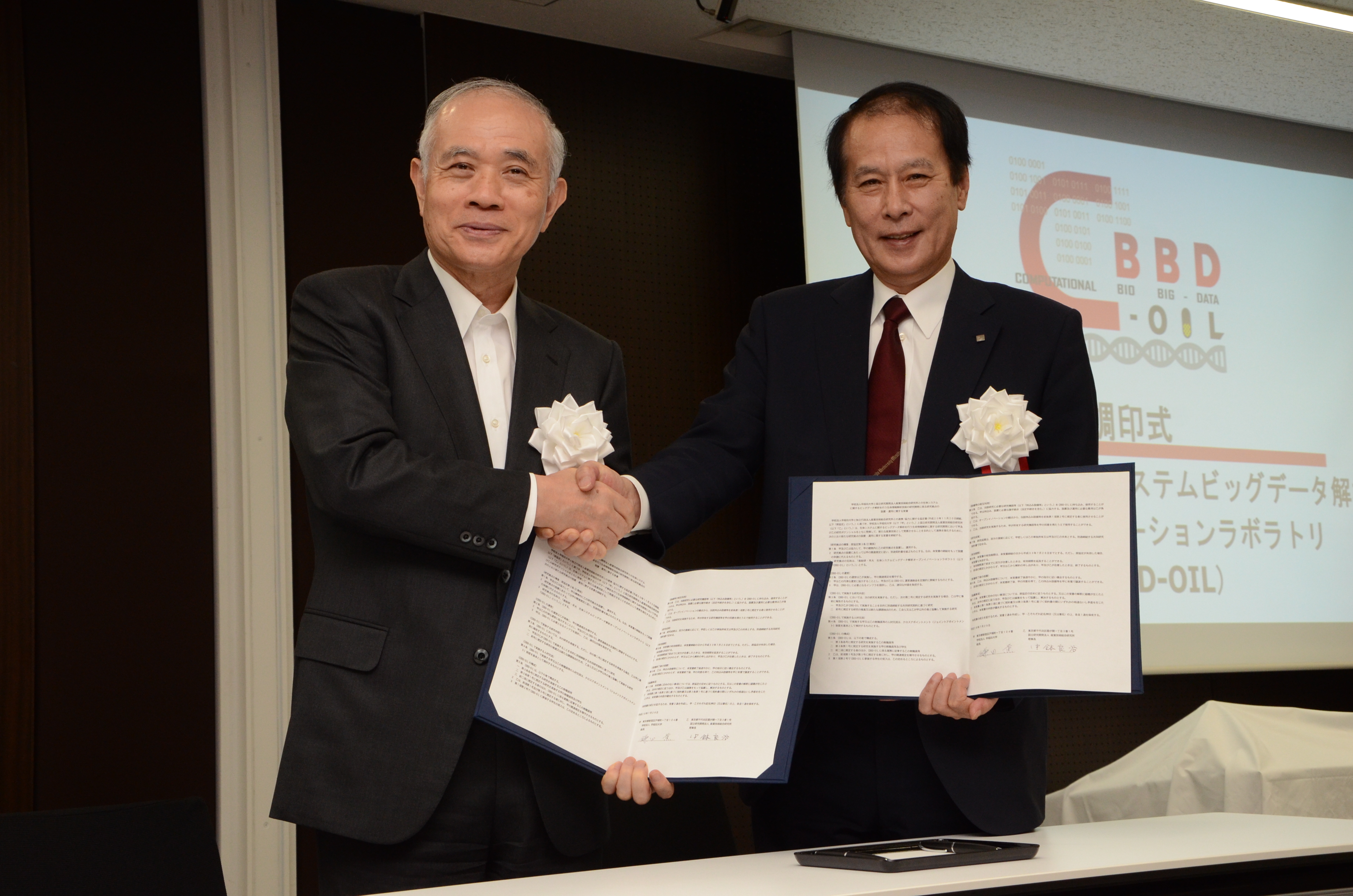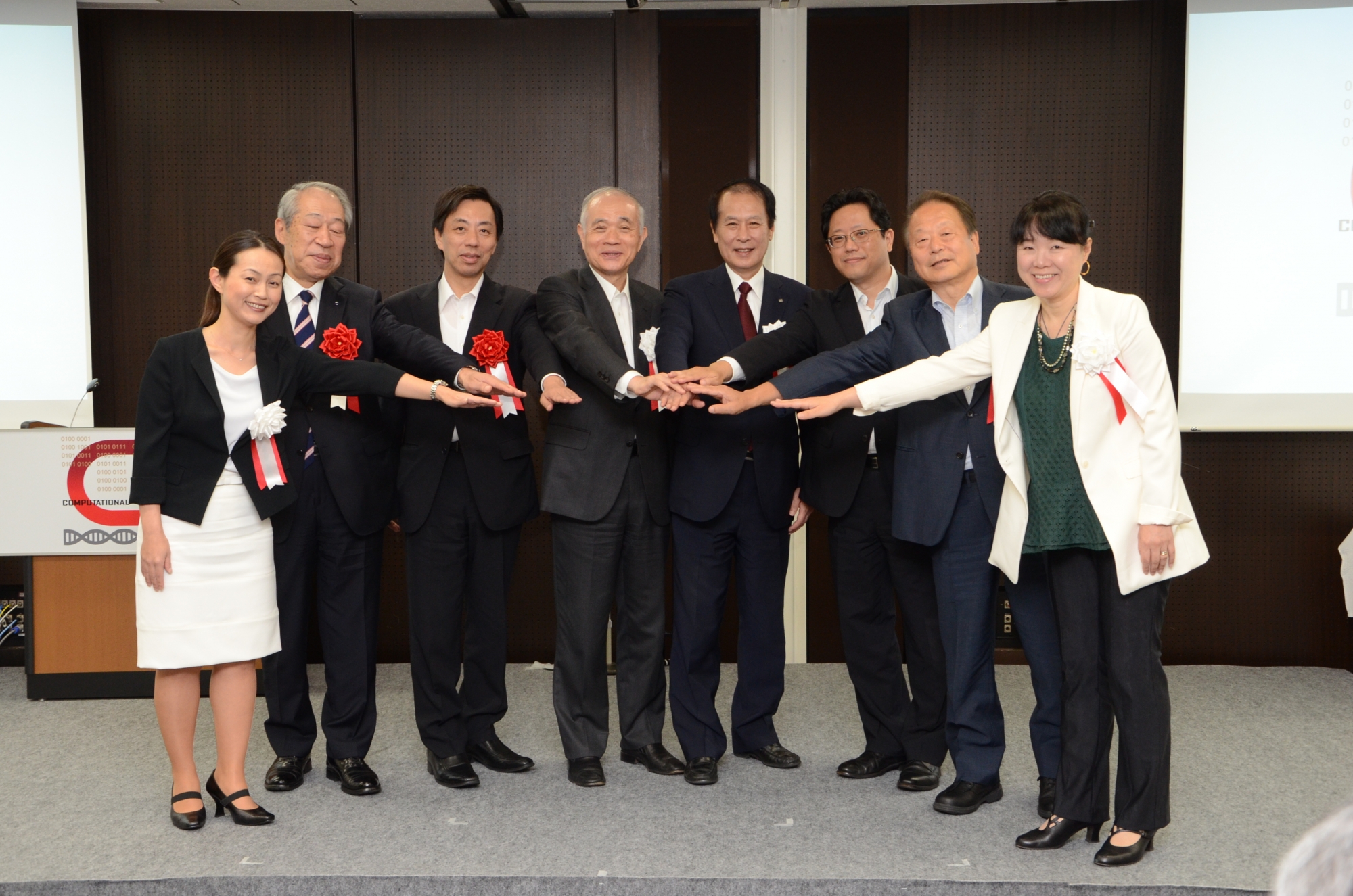AIST-Waseda University Computational Bio Big Data Open Innovation Laboratory
Mon, Sep 26, 2016-
Tags
Waseda University and the National Institute of Advanced Industrial Science and Technology (AIST) established the AIST-Waseda University Computational Bio Big Data Open Innovation Laboratory (CBBD-OIL) on July 29. CBBD-OIL is housed at the Nishi Waseda Campus, and this is AIST’s first organization to collaborate with a private university.

University President Kaoru Kamata with AIST President Ryoji Chubachi
Currently, there is a global trend to combine life sciences with information technology for applications in a wide range of fields such as pharmaceutical medicine and food production. Experimental techniques and equipment have advanced, and biological data on DNA, RNA, and proteins at different levels have exponentially increased in recent years. In order to make full use of such data, information analysis technology capable of swiftly producing accurate results must be developed. Otherwise, pharmaceutical and health industries in Japan would be at a disadvantage in the global competition.
To compete internationally, CBBD-OIL will combine Japan’s leading biological systems’ big data at Waseda University with information analysis technology seeds from Waseda and AIST to identify mechanisms of biological phenomenon as a system and develop experiments, which will prepare for and contribute to highly personalized medical care and better understanding diseases. Furthermore, by building a strong industry – academic – government network, CBBD-OIL intends to lead cutting edge research in biological information technology analysis and become a global standard as it strengthens goal-oriented fundamental research through collaborations with private industries.
Research conducted at CBBD-OIL
1) Understanding the mechanisms of disease onsets from single-cell data
2) Developing biological modeling technology from microdissection data
3) Developing factor identification technology for diseases from intestinal microflora data
4) Data maintenance and analysis technology innovation to discover new genome resources from marine metagenome data














